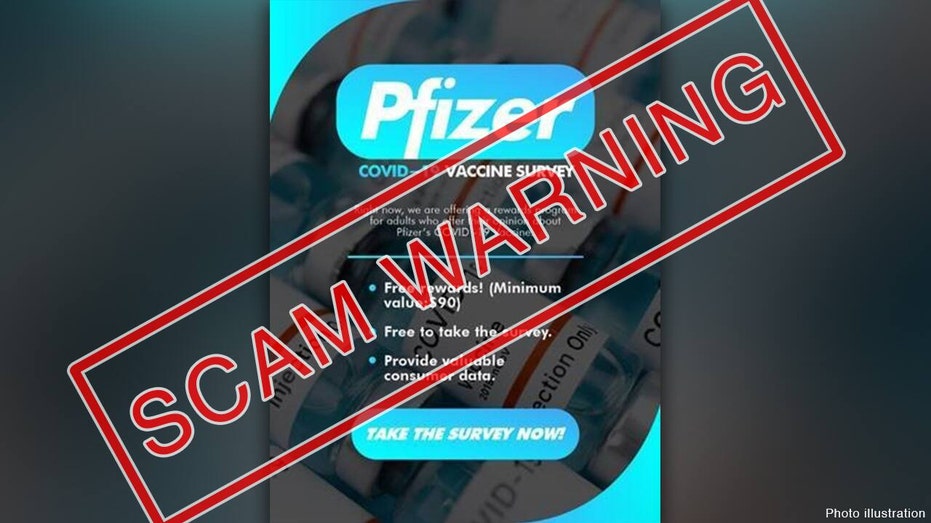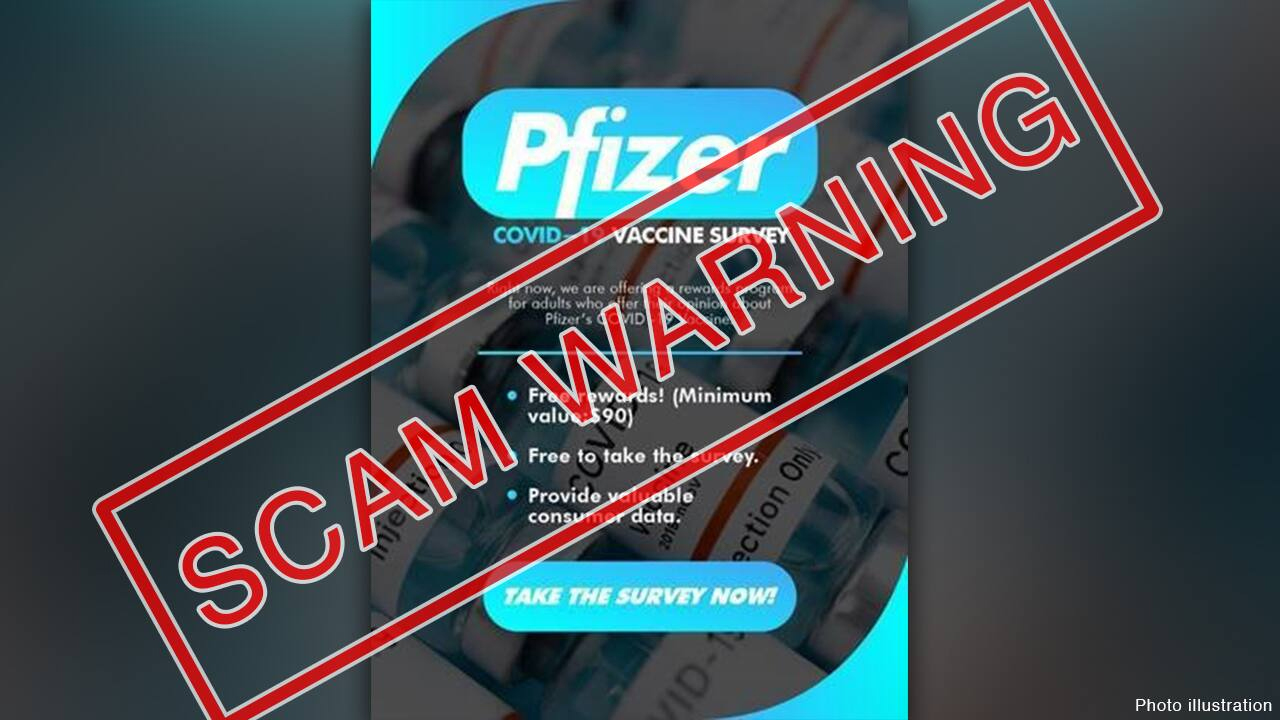Homeland Security warning Americans of fake post-vaccine surveys used to steal personal information
The scammers are sending out the fake surveys through email and text message
Federal officials are warning Americans of a fake post-vaccine survey scammers are sending around in an effort to harvest personal information.
“Fraudulent schemes like this emphasize the need to remain vigilant of those trying to profit from the most vulnerable in the midst of a pandemic,” Steve Francis, director of the National Intellectual Property Rights Coordination Center, said in a statement Wednesday.
The scammers deliver the fake surveys via email and text messages and promise free prizes in exchange for filling out the survey, including an iPad Pro. They ask for credit card information to purportedly cover shipping costs for the prize — which the scammers then steal, putting victims at risk of identity and credit card fraud.

Homeland Security officials sent out this screengrab in a news release warning about the scam.
HACKER MAKES STUNNING CHUNK OF CASH CREATING FAKE COVID-19 VACCINE ORDERS ONLINE
“Unless from a known and verified source, consumers should never click on links in text messages or emails claiming to be a vaccine survey,” Homeland Security Investigations said in a news release.
None of the Food and Drug Administration-approved vaccine manufacturers is conducting post-inoculation surveys, authorities said, making any claim that one is underway fraudulent.
Recipients of such messages are encouraged not to open them, click any links or provide any personal information whatsoever.
Victims should report incidents to their online payment services and contact their financial institutions.
Scam messages and emails can be reported to the government’s Intellectual Property Rights Coordination Center at IPRCenter.gov or Covid19Fraud@dhs.gov
Scammers often come up with new ways to steal credit cards details and other personal information; other common methods are phishing, unsolicited requests for personal information, and impersonating businesses or government agencies.
CLICK HERE TO READ MORE ON FOX BUSINESS
Consumers should be cautious when using their payment information online, especially when they’re being asked to do so under unusual circumstances.
Companies do not contact individuals and ask for usernames or passwords for their own platforms. And when in doubt, users can go to the site directly or contact its customer service.




















